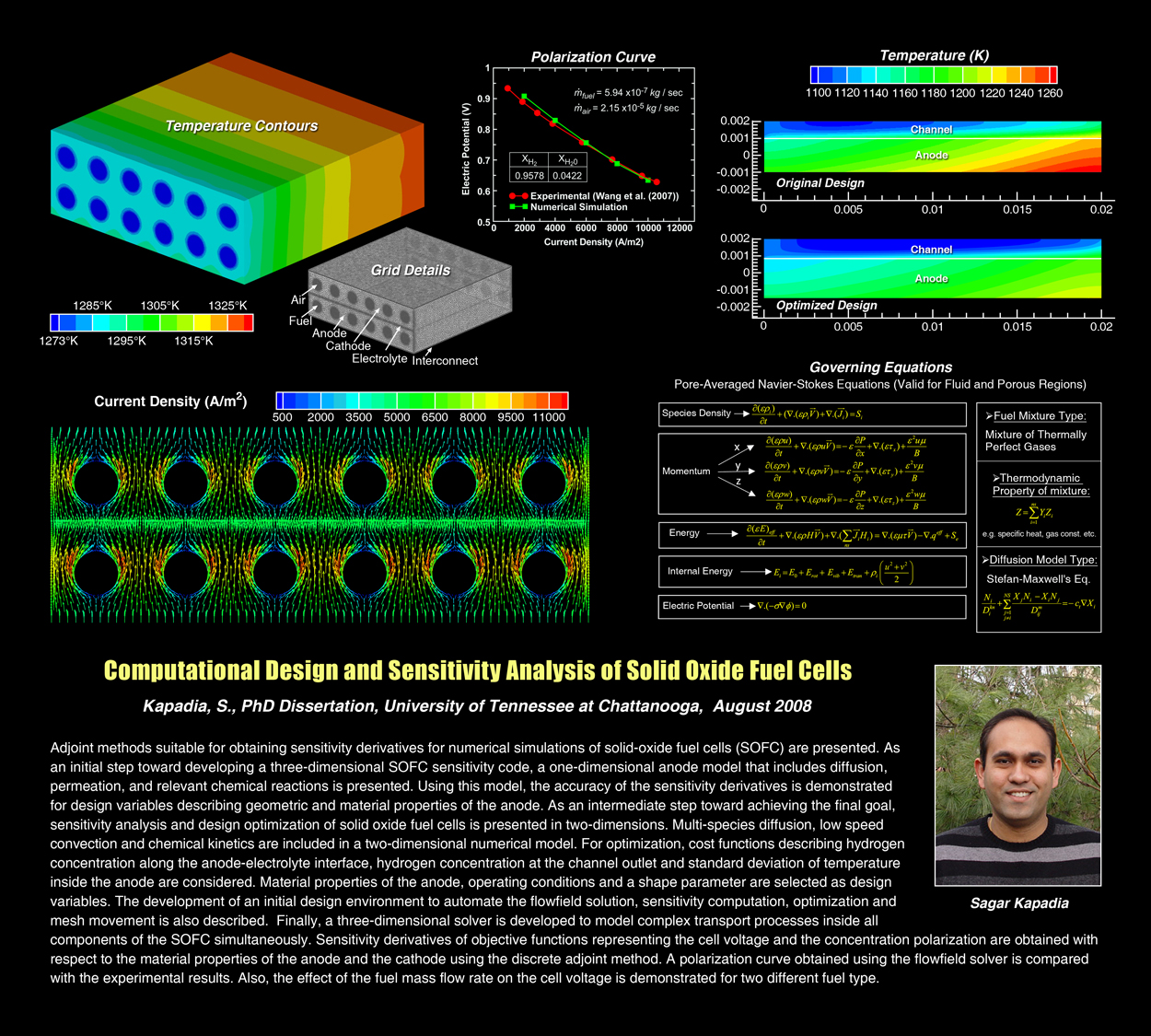Sagar Kapadia
Computational Design and Sensitivity Analysis of Solid Oxide Fuel Cells
A Dissertation Presented for the Doctor of Philosophy in Computational Engineering, The University of Tennessee at Chattanooga
Sagar Kapadia, August 2008
Abstract:
Adjoint methods suitable for obtaining sensitivity derivatives for numerical simulations of solid-oxide fuel cells (SOFC) are presented. As an initial step toward developing a three-dimensional SOFC sensitivity code, a one-dimensional anode model that includes diffusion, permeation, and relevant chemical reactions is presented. Using this model, the accuracy of the sensitivity derivatives is demonstrated for design variables describing geometric and material properties of the anode. As an intermediate step toward achieving the final goal, sensitivity analysis and design optimization of solid oxide fuel cells is presented in two-dimensions. Multi-species diffusion, low speed convection and chemical kinetics are included in a two-dimensional numerical model. For optimization, cost functions describing hydrogen concentration along the anode-electrolyte interface, hydrogen concentration at the channel outlet and standard deviation of temperature inside the anode are considered. Material properties of the anode, operating conditions and a shape parameter are selected as design variables. The development of an initial design environment to automate the flowfield solution, sensitivity computation, optimization and mesh movement is also described. Finally, a three-dimensional solver is developed to model complex transport processes inside all components of the SOFC simultaneously. Sensitivity derivatives of objective functions representing the cell voltage and the concentration polarization are obtained with respect to the material properties of the anode and the cathode using the discrete adjoint method. A polarization curve obtained using the flowfield solver is compared with the experimental results. Also, the effect of the fuel mass flow rate on the cell voltage is demonstrated for two different fuel type.
